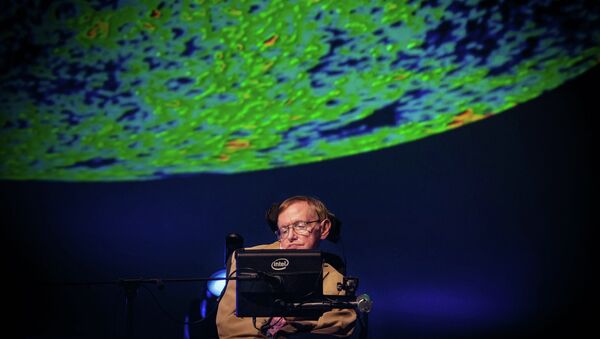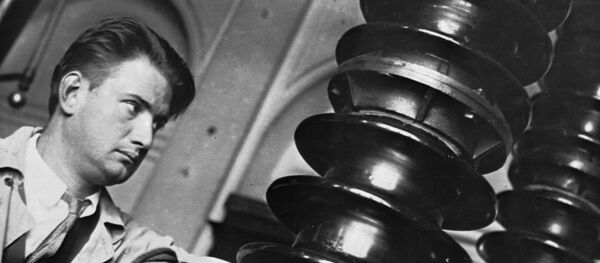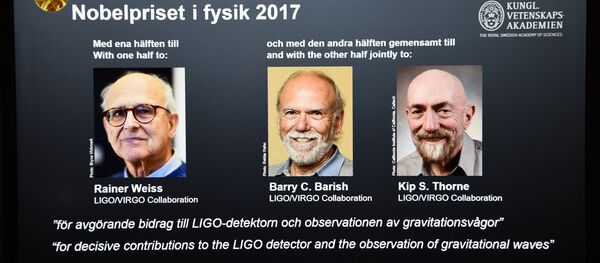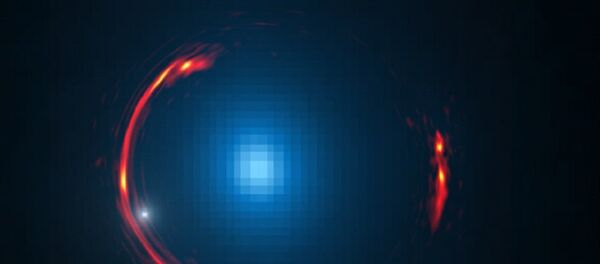The Ph.D thesis, "Properties of Expanding Universes," written by a then-23-year old Cambridge postgraduate of no particular fame named Stephen Hawking, has been one of Cambridge's most requested documents in their expansive catalog. The university claimed that they receive hundreds of unique requests from members of the university to view Hawking's thesis. Even then, one had to pay the university 65 pounds ($85) for the digital copy.
As part of Open Access Week 2017, Cambridge secured Hawking's permission to allow anyone to freely view his 134-page thesis. However, you can't view it at the time of this writing — the announcement generated so much interest in the thesis that it crashed Cambridge's Apollo database. Within 12 hours of posting, the thesis had been viewed over 60,000 times, according to Stuart Roberts, Cambridge's deputy head of research communications.
"By making my Ph.D thesis Open Access, I hope to inspire people around the world to look up at the stars and not down at their feet; to wonder about our place in the universe and to try and make sense of the cosmos," said Hawking. "Anyone, anywhere in the world should have free, unhindered access to not just my research, but to the research of every great and enquiring mind across the spectrum of human understanding."
The thesis focuses on the creation and expansion of the universe in the aftermath of the Big Bang, research that Hawking would expound upon in future books, papers, and documentaries. "Each generation stands on the shoulders of those who have gone before them, just as I did as a young Ph.D student in Cambridge, inspired by the work of Isaac Newton, James Clerk Maxwell and Albert Einstein," said Hawking. "It's wonderful to hear how many people have already shown an interest in downloading my thesis — hopefully they won't be disappointed now that they finally have access to it!"
Despite his famed admiration for the great physicists of days past, Hawking's thesis begins with a challenge to the cosmological theories of his idol, Albert Einstein. "There is a very grave difficulty associated with a static model [of the universe] such as Einstein's which is supposed to have existed for an infinite time," wrote Hawking in the thesis' first paragraph.
"For, if the stars had been radiating energy at their present rates for an infinite time, they would have needed an infinite supply of energy. Further, the flux of radiation now would be infinite. Alternatively, if they had only a limited supply of energy, the whole universe would by now have reached thermal equilibrium which is certainly not the case."
Arthur Smith, deputy head of scholarly communication, added that Cambridge would be enacting new policies to expand the Apollo database, which already includes 15,000 articles and 2,400 theses. "From October 2017 onwards, all Ph.D students graduating from the University of Cambridge will be required to deposit an electronic copy of their doctoral work for future preservation," said Smith.
"And like Professor Hawking, we hope that many students will also take the opportunity to freely distribute their work online by making their thesis Open Access. We would also invite former university alumni to consider making their theses Open Access, too."
Hawking, a pioneer in the field of cosmology, is the origin of much of our modern understanding of the Big Bang, black holes and gravity. While highly respected for his scientific theories, Hawking's fame is likely due to his popular books meant to explain difficult topics of cosmology to laymen. His most famous book, 1988's "A Brief History of Time," has sold over 10 million copies and has been translated into 35 languages.






